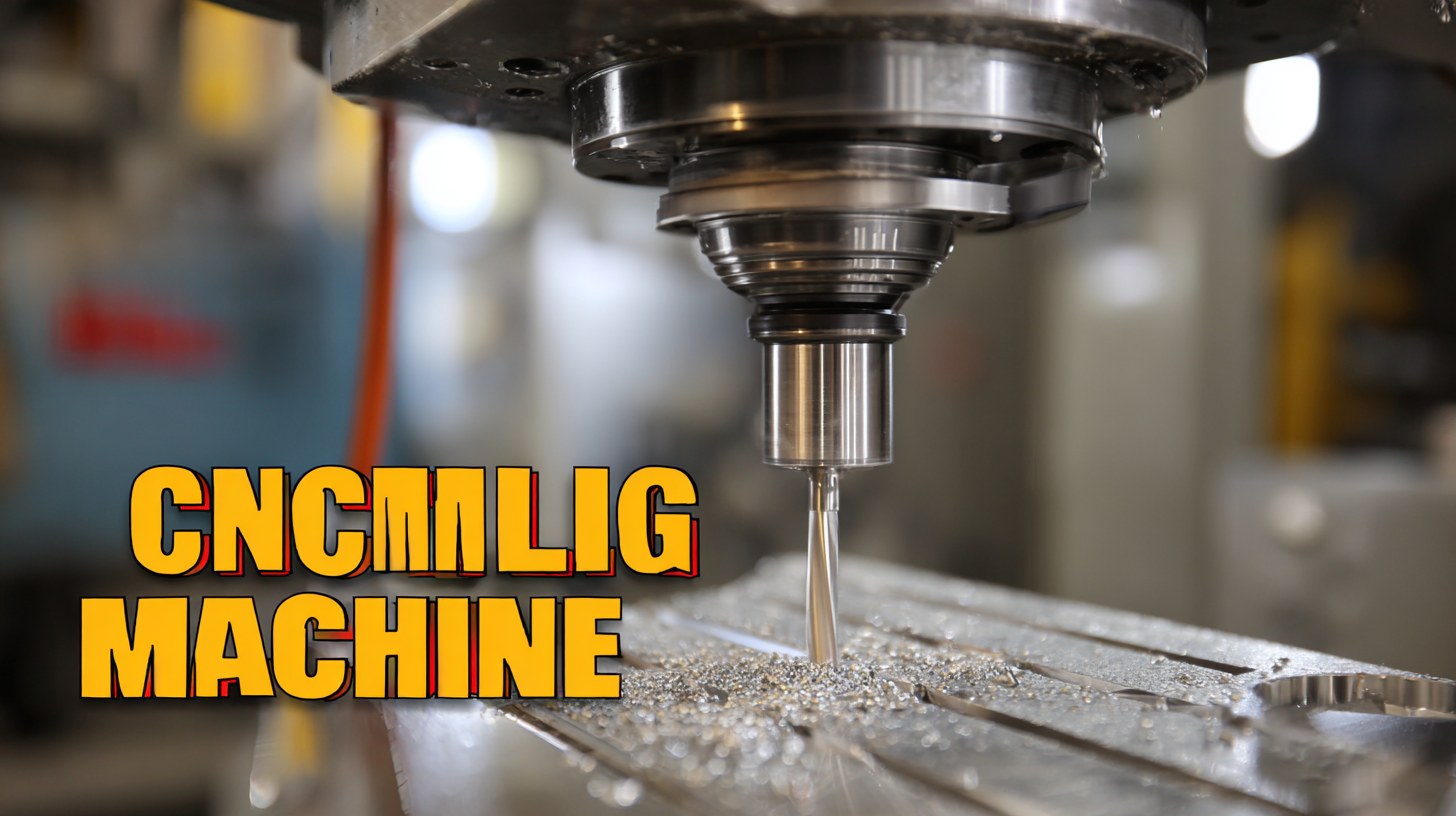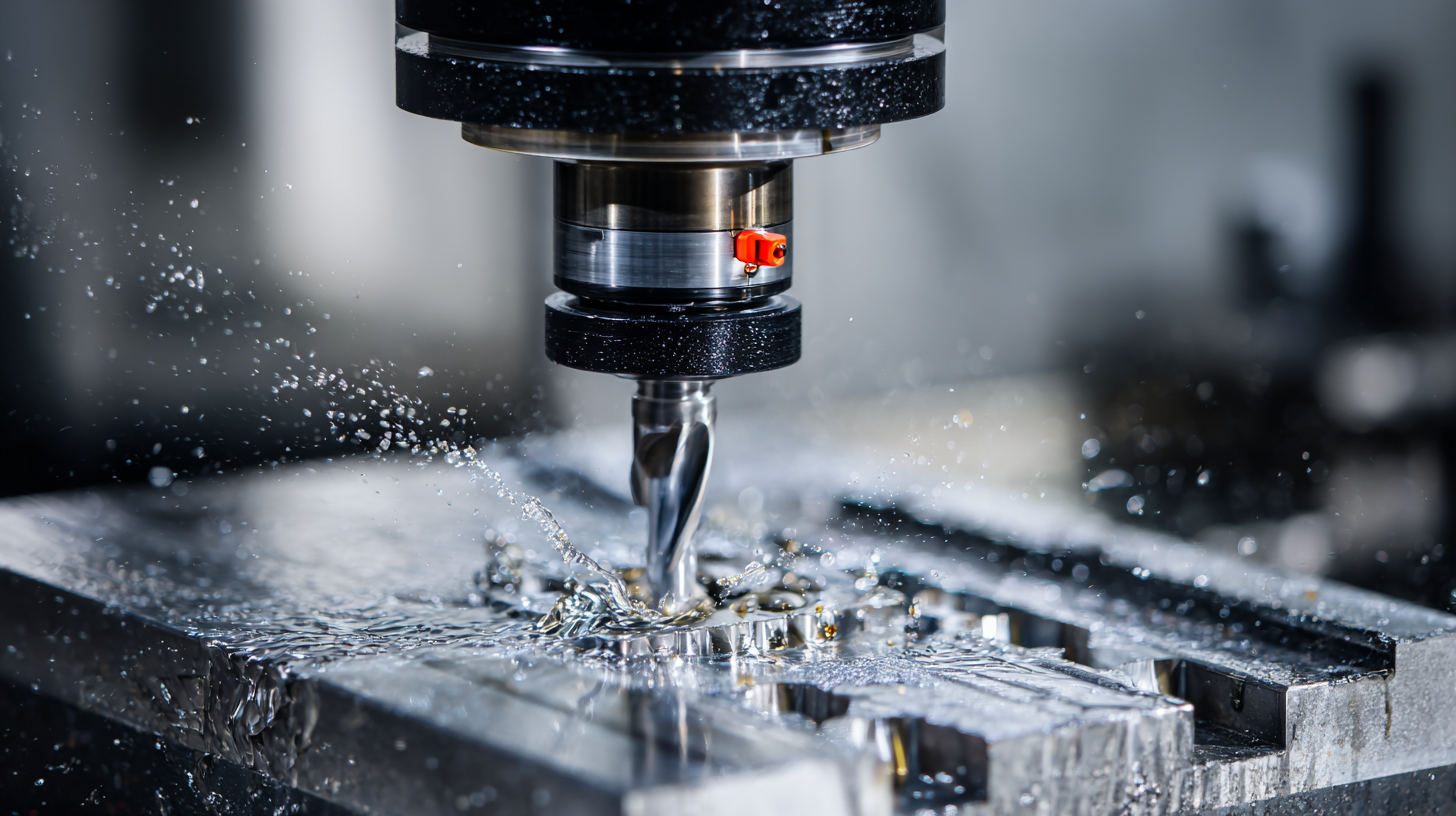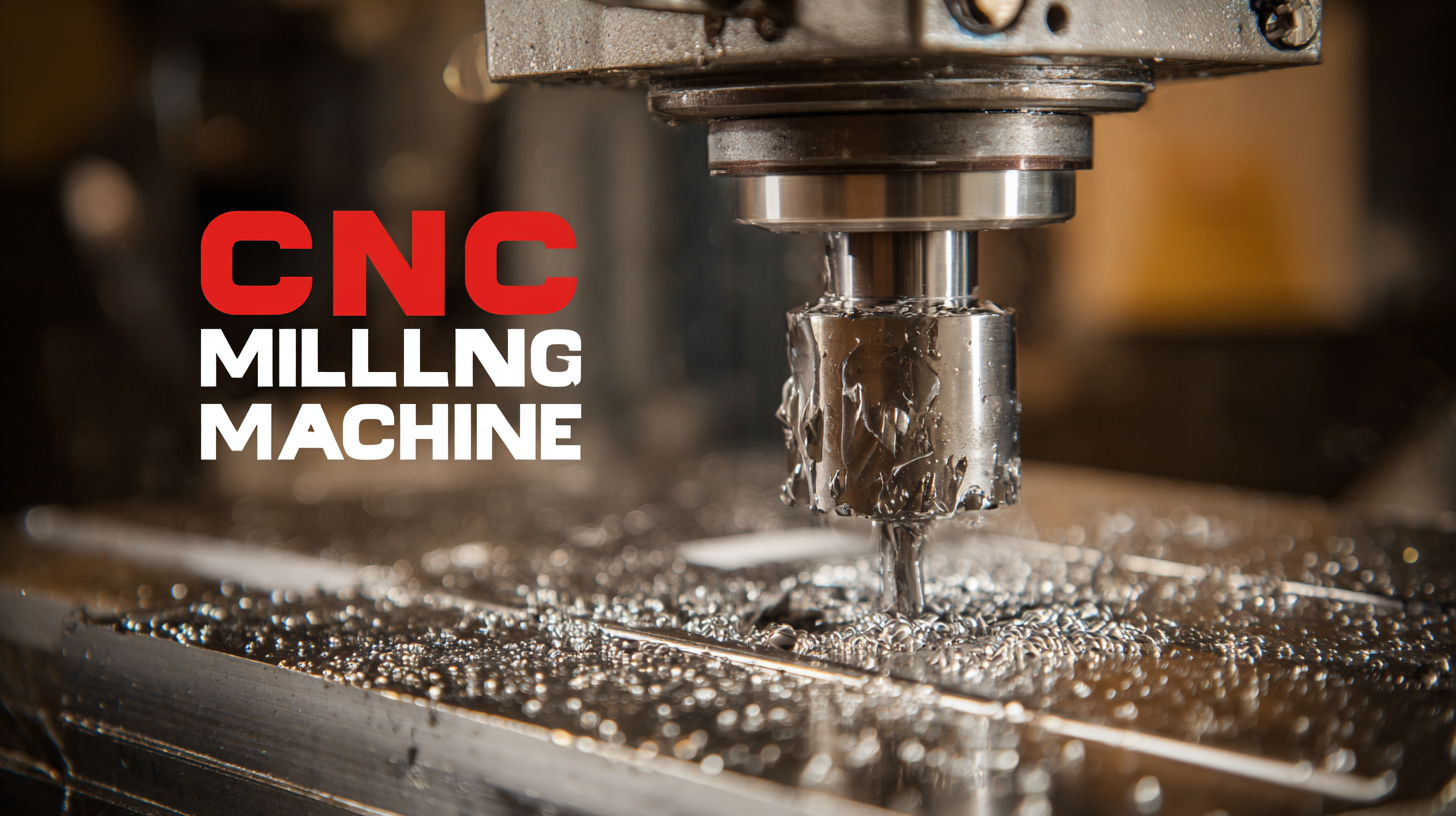Top Strategies for Choosing the Best CNC Milling Machine for Your Business Needs
As businesses increasingly embrace automation and precision manufacturing, selecting the right CNC milling machine has become a critical decision for enhancing operational efficiency and maintaining competitiveness. According to a recent report by Grand View Research, the CNC machining market is expected to reach $100 billion by 2025, driven by a surge in demand across industries such as aerospace, automotive, and healthcare. This growing trend emphasizes the need for companies to invest in state-of-the-art CNC milling machines that not only meet their production needs but also optimize workflow.

With rapid advancements in technology, businesses face the challenge of navigating the vast array of options available. Therefore, understanding the best strategies for choosing a CNC milling machine tailored to specific business requirements is essential for success in today’s dynamic market landscape.
Factors to Consider When Selecting a CNC Milling Machine for Your Business
When selecting a CNC milling machine for your business, several critical factors must be considered to ensure optimal productivity and efficiency. First, the machine's capability in handling various materials and the necessary precision for your specific production requirements are paramount. Recent studies have shown that optimizing CNC milling parameters significantly enhances machining efficiency and quality, indicating that the right machine can lead to substantial gains in operational performance.
Additionally, the technology integrated into the CNC machine plays a vital role in boosting productivity. For instance, advancements in digital-native controls have paved the way for job shops to transition seamlessly into digital manufacturing landscapes. This evolution not only streamlines operations but also reduces the need for human intervention, allowing for more consistent output. Moreover, the ability to predict tool wear through advanced predictive analytics ensures that production remains uninterrupted, ultimately saving costs and time. Investing in modern CNC solutions that incorporate these capabilities can set your business on a trajectory for increased productivity and competitiveness in the market.
Top Strategies for Choosing the Best CNC Milling Machine for Your Business Needs
| Factor | Description | Importance (1-5) | Budget Range |
|---|---|---|---|
| Machine Size | Consider the physical dimensions and working area required for your projects. | 5 | $10,000 - $100,000 |
| Precision and Tolerance | Evaluate the machine’s ability to produce parts within specified tolerances. | 5 | $15,000 - $120,000 |
| Material Compatibility | Identify materials the machine can handle, such as metals, plastics, and composites. | 4 | $10,000 - $80,000 |
| Software Compatibility | Ensure the milling machine can integrate with your existing CAD/CAM software. | 3 | $5,000 - $70,000 |
| Ease of Use | Consider user interface and training requirements for operators. | 4 | $5,000 - $50,000 |
| Support and Maintenance | Evaluate the availability of technical support and maintenance services. | 4 | $2,000 - $15,000 |
Understanding Different Types of CNC Milling Machines and Their Uses
 When it comes to selecting the right CNC milling machine for your business, understanding the different types available is crucial. CNC milling machines can be broadly categorized into horizontal and vertical models.
Horizontal CNC milling machines feature a horizontally oriented spindle, making them effective for larger workpieces and providing better stability during operations. They are ideal for machining complex parts that require precision and efficiency.
When it comes to selecting the right CNC milling machine for your business, understanding the different types available is crucial. CNC milling machines can be broadly categorized into horizontal and vertical models.
Horizontal CNC milling machines feature a horizontally oriented spindle, making them effective for larger workpieces and providing better stability during operations. They are ideal for machining complex parts that require precision and efficiency.
On the other hand, vertical CNC milling machines have a vertically oriented spindle and are versatile in handling a variety of materials. They are particularly suitable for smaller jobs and detailed work due to their ability to offer better visibility during the milling process.
Additionally, there are specialized CNC milling machines designed for specific applications. For instance, religious CNC machines are built with features to cater specifically to the demands of the woodworking and textile industries, while multi-axis CNC machines provide advanced capabilities by allowing operations on multiple axes simultaneously. These machines are preferred for creating intricate designs and complex geometries.
Understanding these distinctions allows businesses to align their specific manufacturing needs with the right machinery, ensuring enhanced productivity and precision in their operations.
Key Features to Look for in a High-Quality CNC Milling Machine
When selecting a CNC milling machine, understanding key features is essential for meeting specific business needs. One important aspect is the machine's rigidity and stability. According to a report by the International Society of Automation, machines that incorporate robust structural designs can reduce vibrations during operation, resulting in higher precision and improved surface finish. This means less material waste and lower costs in the long run.
Another vital feature to consider is the speed and versatility of the CNC machine. The latest industry data indicates that high-precision CNC milling machines can operate at speeds exceeding 15,000 RPM, enabling faster turnaround times while maintaining accuracy within ±0.005 mm. Additionally, machines equipped with multiple axes—often featuring 5-axis capabilities—allow for complex shapes to be machined in a single set-up, greatly enhancing efficiency. As demand for customization rises, investing in a versatile CNC milling machine can give businesses a competitive edge in the market.
Top Features of CNC Milling Machines
How to Evaluate CNC Suppliers: Tips for Successful Partnerships
When it comes to evaluating CNC suppliers, establishing strong partnerships is crucial for the longevity and success of your operations. One of the first tips is to assess the supplier's reputation in the industry. Look for reviews and testimonials from other businesses to gauge their reliability and quality of service. Engaging with existing customers can provide insight into how the supplier handles issues like machine maintenance and customer support.

Another important factor to consider is the supplier’s range of products and services. It's beneficial to partner with a supplier that offers a comprehensive selection of CNC milling machines to ensure that they can meet your evolving business needs. Additionally, inquire about their technical support and training resources. A supplier that invests in educating its customers and providing ongoing support can greatly enhance your team's expertise and efficiency.
Lastly, transparent communication is key. Establish a clear dialogue about your specific needs and expectations from the start. This not only helps in getting the right equipment but also fosters a collaborative relationship that can adapt as your business grows. By actively engaging with potential suppliers and ensuring they align with your vision, you can create successful partnerships that benefit your operations in the long run.
Cost vs. Quality: Finding the Right Balance in CNC Milling Equipment选择
When selecting the best CNC milling machine for your business, striking the right balance between cost and quality is crucial. High-quality machinery can significantly enhance your machining efficiency, but it often comes at a higher price. Recent studies indicate that unbalanced tool holders can lead to increased spindle heat and premature failure, resulting in costly downtime. To avoid such issues, investing in a well-balanced CNC milling machine pays off in the long run, minimizing maintenance costs and extending the lifespan of your equipment.
Tip: When evaluating CNC milling machines, pay close attention to the machine's specifications related to tool holder vibration. Machines designed to minimize vibration and enhance balance can improve the overall machining process, ensuring both power and precision when manufacturing complex parts like turbine blades. In fact, a balanced setup is essential for achieving optimal performance during both roughing and finishing processes.
Additionally, consider the machine’s adaptability to various materials and production methods. With advances in NC machining technologies, checking the optimization capabilities of CNC milling machines can lead to better machining outcomes. For example, more sophisticated machines can support high-speed machining, which is essential for keeping pace with the growing demands in various industries. Assessing these features will help you find a cost-effective solution that does not compromise on quality.
